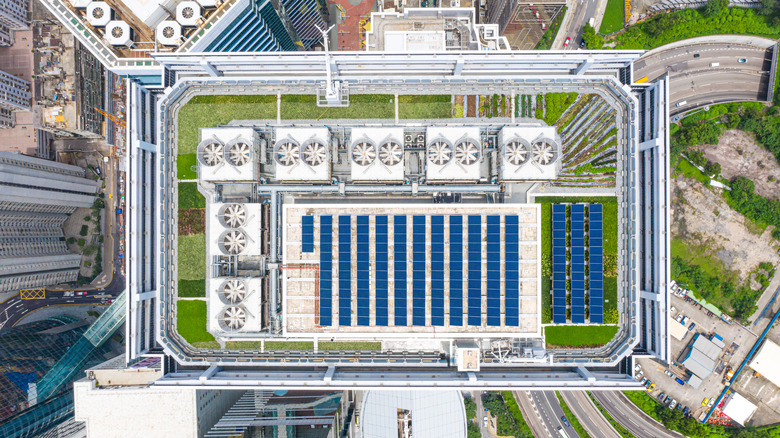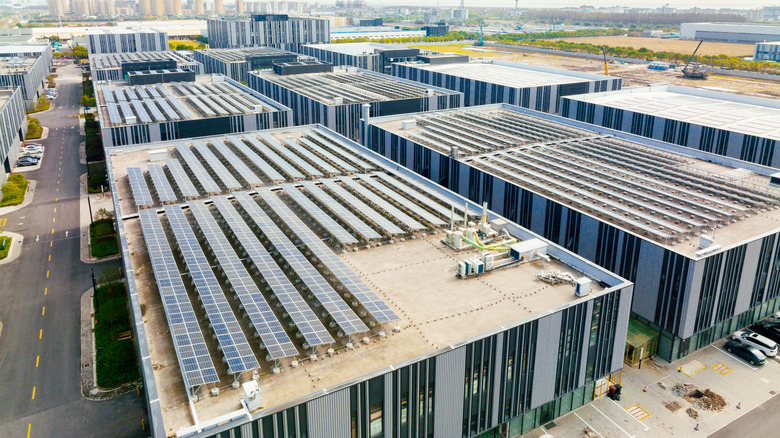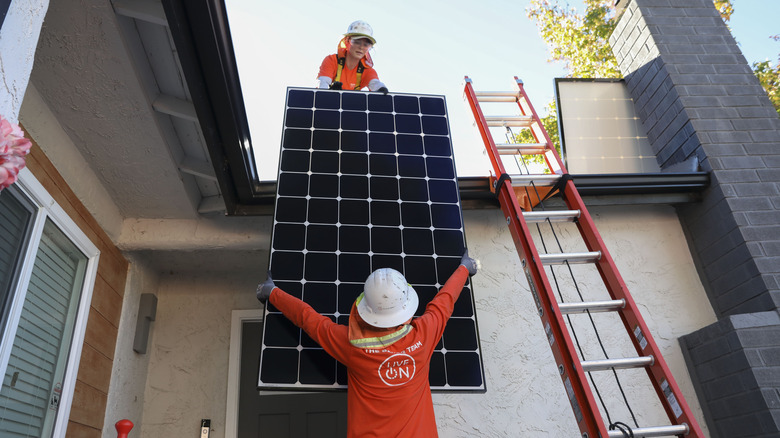What Makes Commercial Solar Panels Different, And Can You Use Them On Your Home?
After you become a homeowner, the costs of regular maintenance and services like power, garbage collection, and water become painfully apparent. So, it's not a mystery why so many homeowners are looking to save money where they can. Humanity has been taking advantage of the sun's rays for millennia, but it wasn't until the early 2000s that people started adding solar panels to their homes.
According to the U.S. Department of Energy, just .02% of available renewable energy was utilized in the U.S. in 2020, meaning solar energy has immense potential. It isn't just homes capturing the sun's power but also portable products like Ryobi's 60W foldable solar panel that lets you charge your tools for free.
With modern residential solar panel systems, homeowners can lower their utility bills, avoid blackouts, and even enhance their homes' value. So, many looking to reap the benefits of solar power wonder if commercial systems are even better and if they can use commercial solar panels for their home. Commercial solar panels are larger, more complicated, and require more extensive permits and approvals. So, installing commercial panels on a residential property would come with several challenges, making it a less-than-ideal choice for homeowners.
More powerful but larger and costly
Commercial solar panels contain more photovoltaic cells (more power generation capability) than residential equipment, making them a more attractive prospect for homeowners. However, this additional power comes at a cost, with commercial panels being much more extensive than their family neighborhood counterparts. These commercial panels take up vast sections of building and parking structure roofs and even acres of land when installed on the ground.
Even if a homeowner could accommodate commercial solar panels on their property and get all the necessary approvals and permits, is it even affordable? Not really. Unfortunately, commercial units can run into the six- and seven-figure range because of their size and the more complex installation process. If the original goal was to save some money, the prohibitive cost makes commercial solar panels a non-starter for residential homes. These systems are designed for businesses, some of which employ thousands of people working in skyscrapers or large factories with immense power needs that far outpace those of a typical home.
Weight and installation are an issue
Putting aside all the other challenges to installing commercial solar panels on a residential structure, you must also contend with added weight. A residential panel is around 40 lbs, give or take, depending on the material used. The larger commercial panels can weigh ten or more pounds than the residential. The added weight may not seem like much until you factor in how many panels will be installed on your house. To generate enough power to make the solar option viable, you'll need upwards of 20 residential panels installed on the roof. Now add ten or more pounds for each panel to account for the larger commercial units, and you're putting a lot of extra weight on your house.
Let's say, for example, you installed 20 commercial panels on your roof, each weighing 60 lbs. Where residential panels (at 40 lbs. each) may weigh around 800 lbs, the commercial panels add another 400 lbs for a whopping 1,200 lbs sitting on top of your home. In addition, with the heavier and more complex commercial panels, you likely couldn't install them yourself to save money. The bottom line is that for homeowners looking to tap into the sun's power, the ideal option continues to be residential solar panels. If you're not ready for the cost of a home solar system but are intrigued by the technology, you can start smaller with Garmin's new smartwatch, which is equipped with solar charging for ultra-long battery life.


